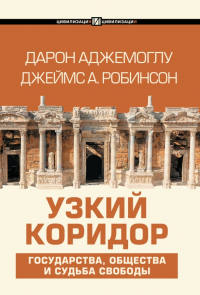Книга Почему одни страны богатые, а другие бедные. Происхождение власти, процветания и нищеты - Дарон Аджемоглу
На нашем литературном портале можно бесплатно читать книгу Почему одни страны богатые, а другие бедные. Происхождение власти, процветания и нищеты - Дарон Аджемоглу полная версия. Жанр: Книги / Политика. Онлайн библиотека дает возможность прочитать весь текст произведения на мобильном телефоне или десктопе даже без регистрации и СМС подтверждения на нашем сайте онлайн книг knizki.com.
Шрифт:
-
+
Интервал:
-
+
Закладка:
Сделать
Перейти на страницу:
Перейти на страницу:
Внимание!
Сайт сохраняет куки вашего браузера. Вы сможете в любой момент сделать закладку и продолжить прочтение книги «Почему одни страны богатые, а другие бедные. Происхождение власти, процветания и нищеты - Дарон Аджемоглу», после закрытия браузера.
Книги схожие с книгой «Почему одни страны богатые, а другие бедные. Происхождение власти, процветания и нищеты - Дарон Аджемоглу» от автора - Джеймс А. Робинсон, Дарон Аджемоглу:
Комментарии и отзывы (0) к книге "Почему одни страны богатые, а другие бедные. Происхождение власти, процветания и нищеты - Дарон Аджемоглу"
























